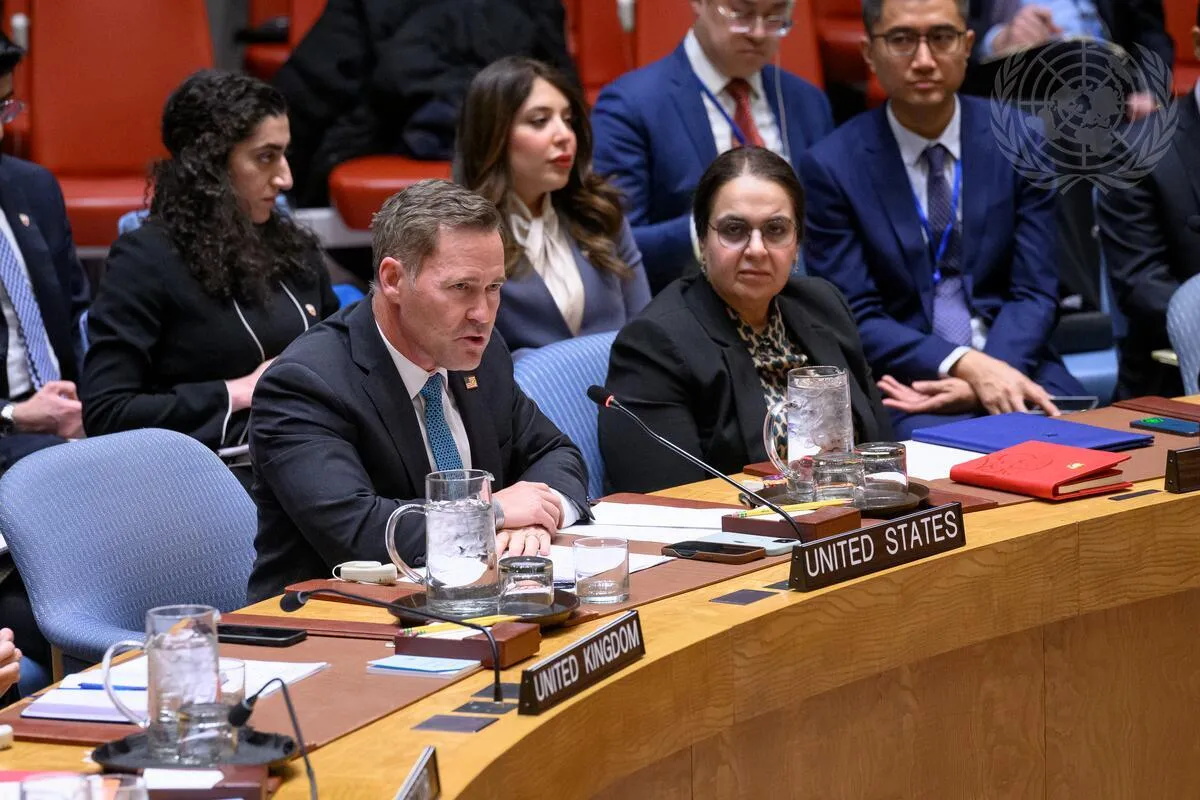Yesterday’s Ministerial Meeting on the Situation in the Middle East at the UN Security Council heard several hard-hitting speeches by participants, starting with Secretary-General António Guterres’s statement that the entirety of Gaza’s population “is enduring destruction at a scale and speed without parallel in recent history. Nothing can justify the collective punishment of the Palestinian people.” He was joined in his denunciation by many others from the Arab and Muslim world, and elsewhere, who zeroed in on the Security Council’s utter failure to act, due to the constant U.S. vetoing of ceasefire resolutions.
Lana Zaki Nusseibeh, Assistant Minister for Political Affairs of the United Arab Emirates warned that the suffering in Gaza competes with the darkest periods of history. “This moment can be an inflection point, or it can be a point of no return,” she said. Riyad Al Maliki, Foreign Affairs Minister for the Observer State of Palestine, demanded its recognition and admission to the UN. “We were not granted a veto right over Israel’s admission to the United Nations 75 years ago; Israel does not have a veto right over the admission of the State of Palestine 75 years later,” he said. “The international consensus on two States in this land must be upheld in word and deed. We are running out of time.”
As is his wont, Russian Foreign Minister Sergey Lavrov spared no words in denouncing the United States role on the Security Council, stating “we are shocked by the deviousness of U.S. diplomats who veto ceasefire resolutions and then demand a reduction in the intensity of fighting in Gaza.” This gives them carte blanche to continue with the “collective punishment” of Palestinians.
And, he warned, because the Security Council has failed to take comprehensive measures, the current escalation of the Palestine conflict “has metastasized throughout the region.” The “pernicious” involvement of the U.S. and its allies in the Mideast and the Eurasian continent is creating “new and unacceptable risks to international security.” Washington’s “allegedly effective bilateral diplomacy” has been “absolutely disastrous…. Every new round of Washington’s arrogant one-sided policy in the Middle East and separate shuttle negotiations with regional players, accompanied by financial promises, leads to an increasingly bloody escalation. It has happened this time too.”
China’s Ambassador to the UN Zhang Jun made equally strong remarks, pointing to the “overwhelming consensus in the international community on an immediate ceasefire,” which has been blocked “because of the repeated use of the veto by an individual country,” the U.S. Immediate ceasefire “must be considered the highest priority,” he warned, as protracted war “will only cause more deaths and make the prospect of peace more distant … it is the basic prerequisite for saving lives.”
Zhang stated emphatically that the two-state solution “must be revitalized … it is the only viable way to achieve peace for Palestine and Israel…. We are gravely concerned about statements made by the Israeli leadership last week, rejecting a two-state solution…. This is not acceptable. Any discussion of a post-war arrangement for Gaza that deviates from the two-state solution is tantamount to building a house on quicksand.”


